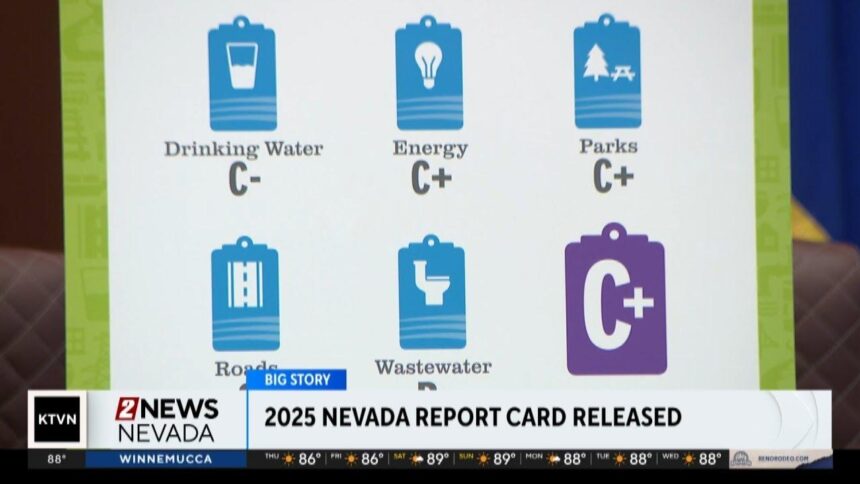CCSD Records Remarkable Academic Growth Amid National Educational Setbacks
The most recent Nevada Report Card showcases important academic advancements within the Clark County School District (CCSD), setting it apart from many districts across the United States. While national data reveals a plateau or decline in student achievement, CCSD has made extraordinary headway in essential subjects including literacy, mathematics, and science. These gains reflect the district’s deliberate focus on strategic programs such as personalized learning interventions, expanded digital learning tools, and enhanced professional development for educators, all contributing to a more supportive teaching environment.
Highlights from the 2023 academic year include:
- Reading proficiency rose by an impressive 7% compared to the previous year.
- Mathematics scores improved by 5.4% across elementary and middle school levels.
- Science achievement increased by 4.3%, reflecting the success of STEM-focused programs.
| Subject | 2023 Proficiency Rate | 2022 Proficiency Rate | Year-over-Year Growth |
|---|---|---|---|
| Reading | 62.7% | 55.7% | +7.0% |
| Math | 57.2% | 51.8% | +5.4% |
| Science | 58.5% | 54.2% | +4.3% |
Understanding Nevada’s Distinct Educational Challenges Amid National Disparities
National assessments often provide a broad overview of educational trends, but Nevada’s public schools, especially those within CCSD, contend with unique obstacles that influence student outcomes. Factors such as a diverse student population, uneven funding, and socioeconomic disparities create a complex educational environment. Despite these challenges, many Nevada schools have made commendable progress in areas like literacy, graduation rates, and student participation, highlighting the dedication of educators working in diverse and often underserved communities.
Contributing factors to these disparities include:
- A significant number of English Language Learners requiring specialized instructional support.
- Limited availability of advanced academic courses in certain districts.
- Unequal access to technology and educational resources outside of school.
| Metric | CCSD 2023 | National Average |
|---|---|---|
| Reading Proficiency | 62% | 67% |
| Math Proficiency | 58% | 61% |
| Graduation Rate | 85% | 84% |
Interestingly, CCSD’s graduation rate slightly exceeds the national average, underscoring the district’s effective strategies to retain and graduate students despite proficiency gaps. These figures emphasize both the progress achieved and the ongoing need for targeted investments to bridge remaining gaps.
Effective Initiatives Elevating Education in CCSD’s Underserved Communities
CCSD’s dedication to educational equity is evident through its customized programs aimed at improving outcomes in historically underserved neighborhoods. Efforts such as expanding bilingual education, increasing access to digital learning tools, and fostering partnerships with community organizations have created inclusive environments conducive to student success. Additionally, mentorship programs and family engagement workshops have strengthened the support network for students and their families, which is critical for academic achievement.
- Enhanced digital resource availability to close the technology divide.
- Extended learning opportunities via afterschool and summer enrichment programs.
- Data-informed teaching methods tailored to individual student needs.
- Collaborative community efforts involving local nonprofits and stakeholders.
Data from schools in these communities reveal consistent gains in reading and math proficiency, surpassing district-wide averages. Below is a summary of progress from three representative schools:
| School | Reading Proficiency Growth | Math Proficiency Growth | Attendance Rate Increase |
|---|---|---|---|
| Desert Pines Elementary | +8% | +10% | +4% |
| Sun Valley Middle | +6% | +9% | +3% |
| West Lake High | +7% | +11% | +5% |
Sustaining Educational Progress Through Early Childhood Investment: Expert Perspectives
Education specialists stress that the improvements observed in CCSD represent just the initial phase of a longer journey. To maintain and accelerate this positive trajectory, sustained funding and focus on early childhood education are essential. Research consistently shows that skills developed before kindergarten—such as early literacy,social-emotional learning,and cognitive development—are critical predictors of future academic success. Experts advocate for increased support of preschool programs and family engagement initiatives to foster equitable learning opportunities from the outset.
Recommended focus areas include:
- Broadening access to high-quality pre-kindergarten programs, particularly in low-income communities.
- Enhancing training and retention efforts for early childhood educators.
- Providing comprehensive family support services, including health and nutrition assistance.
- Utilizing data analytics to continuously monitor and improve early learning outcomes.
| Investment Focus | Expected Outcome | Implementation Timeline |
|---|---|---|
| Pre-K Program Expansion | Improved kindergarten readiness rates | 3-5 years |
| Early Educator Development | Higher quality instruction | 2-4 years |
| Family Support Services | Lower absenteeism and better engagement | 1-3 years |
| Data-Driven Monitoring | More precise and effective interventions | Immediate to 2 years |
Concluding Thoughts on CCSD’s Educational Advancements and Future Directions
The latest Nevada Report Card highlights the ample progress made by CCSD schools, showcasing meaningful improvements in critical academic areas. While the national educational landscape faces numerous challenges, Nevada’s advancements illustrate how focused strategies and community-driven initiatives can produce tangible results. As educators and policymakers continue to tackle persistent obstacles, the district’s achievements offer a promising blueprint for fostering student success through sustained investment and collaborative support.
